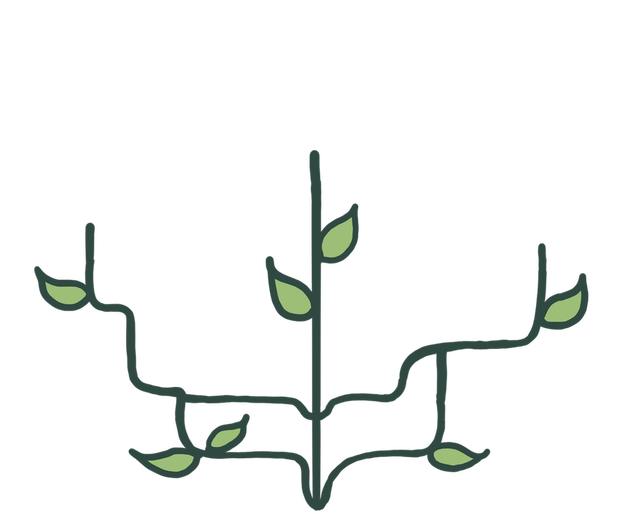1
How does it all work?
The structure of Dutch academia
1.1
Types of academic institutions in the Netherlands
There are fourteen major universities in the Netherlands. Seven of these are comprehensive universities: Leiden University (UL), Maastricht University (MU), Radboud University Nijmegen (RU), the University of Amsterdam (UvA), the University of Groningen (UG), Utrecht University (UU), and VU Amsterdam (VU, ‘Vrije Universiteit’). They offer degree programmes and support research across a broad spectrum of academic disciplines, though not every discipline is represented at every university. To use a taxonomy that is popular in the Netherlands, though confusing to newcomers, they cover ‘the alpha disciplines’ (i.e., the Humanities), the ‘beta disciplines’ (i.e., the Natural Sciences), the ‘gamma disciplines’ (i.e., the Social and Behavioural Sciences), and medical sciences.
Six universities are more specialised institutions, focusing, e.g., on engineering and applied sciences: Delft University of Technology (TUD), Eindhoven University of Technology (TU/e), the University of Twente (UT), Wageningen University & Research (WUR), Erasmus University Rotterdam (EUR), and Tilburg University (TiU).
Finally, there is the Open University in the Netherlands (OU), which specialises in online (part-time) education and research, and in the Caribbean part of the Kingdom of the Netherlands there are the University of Curaçao and the University of Aruba.
Of the fourteen universities in the Netherlands, two have a religious (Christian) background (VU Amsterdam and Tilburg University).
There are eight university medical centres (UMCs): Amsterdam UMC (Amsterdam; VU and UvA), Erasmus MC (Rotterdam; EUR), LUMC (Leiden; LU), Maastricht UMC+ (Maastricht; UM), Radboudumc (Nijmegen, RU), UMCG (Groningen; UG) and UMCU (Utrecht; UU). The research and (graduate) teaching happening in these medical centres is part of the medical faculties of their universities.
In 2010, a further four universities were added to the list of government- funded universities: Theological University Kampen (TUK), University of Humanistic Studies Utrecht (UvH), Protestant Theological University (PThU), and Theological University Apeldoorn (TUA).
In addition, there are nine University Colleges, each affiliated with a university: Leiden University College (LUC, situated in The Hague), University College Utrecht (UCU), University College Roosevelt (UCR; also affiliated with UU), University College Maastricht (UCM), Amsterdam University College (AUC; affiliated with UvA and VU), University College Twente (ATLAS), University College Groningen (UCG), University College Fryslân (UCF; also affiliated with UG) and Erasmus University College (EUC). They offer bachelor (BA and BSc) degrees in the Social Sciences, Humanities and Sciences and tend to be broad Liberal Arts & Sciences programmes taught in English. Academic staff of the affiliated universities occasionally teach courses at the University Colleges; the permanent staff at the University Colleges typically have little or no time for research.
BA/BSc, master (MA/MSc) and even PhD degrees can also be obtained at private institutions and universities, such as Nyenrode Business Universiteit. These institutions are not financed by the government, seek accreditation separately, and are free to set their own tuition fees.
There are roughly twenty government-funded research institutes. Nine of these operate under the umbrella of the Dutch Research Council (Nederlandse Organisatie voor Wetenschappelijk Onderzoek, NWO; see Section 2.3) Institutes organisation, called NWO-I. These are: AMOLF (Physics of Functional Complex Matter); ARCNL (Advanced Research Center for Nanolithography); ASTRON (Netherlands Institute for Radio Astronomy); CWI (Centre for Math and Informatics); DIFFER (Dutch Institute for Fundamental Energy Research); Nikhef (National Institute for Subatomic Physics); NIOZ (Royal Netherlands Institute for Sea Research); NSCR (Netherlands Institute for the Study of Crime and Law Enforcement); and SRON (Netherlands Institute for Space Research).
Another ten national research institutes operate under the umbrella of the Royal Netherlands Academy of Arts and Sciences (Koninklijke Nederlandse Akademie van Wetenschappen, KNAW; see Section 2.4). These are: Hubrecht Institute for Developmental Biology and Stem Cell Research; Huygens Institute for the History of the Netherlands (Huygens ING); International Institute for Social History (IISH); Royal Netherlands Institute of Southeast Asian and Caribbean Studies (KITLV); Meertens Institute (research and documentation of Dutch language and culture); NIOD Institute for War, Holocaust and Genocide studies; Netherlands Interdisciplinary Demographic Institute (NIDI); Netherlands Institute of Ecology (NIOO); Netherlands Institute for Neuroscience (NIN); and the Westerdijk Fungal Biodiversity Institute. The Academy is also responsible for two institutes that provide research infrastructure: the Data Archiving and Networked Services (DANS) and Netherlands Institute for Advanced Study in the Humanities and Social Sciences (NIAS). Furthermore, the Academy has an alliance with another two institutes: the Rathenau Instituut (research and dialogue relating to the societal aspects of science, innovation and technology) and the Fryske Akademy (research into the Frisian language, history, and culture). While these institutes do not grant degrees, researchers at these institutes sometimes have joint appointments at the universities, teach courses and supervise BSc/MSc/PhD candidates.
Also, the Netherlands has 13 organisations that form the Public Knowledge Organisation network (Rijkskennisinstellingen [RKI] and planbureaus). Each organisation is connected in one way or another to a specific Ministry. They perform a variety of – public – knowledge tasks, ranging from fundamental and experimental research and development to, e.g., operational knowledge. They supply society and (government) policymakers with science-based knowledge for planning and evaluation purposes. Together they cover a wide range of domains – from climate, social and economic science, statistics, public health, public safety to cultural heritage, etc.
1.2
Organisation of Dutch universities
The supervisory board (Raad van Toezicht) of Dutch universities is a board of trustees that oversees the executive board (College van Bestuur, or CvB) and monitors its annual reports, strategic plans, etc. The supervisory board is usually appointed by the Minister of Education, Culture and Science (Ministerie van Onderwijs, Cultuur en Wetenschap, or OCW), or elected by the association members council (e.g., in the case of VU Amsterdam).
Fig. 1: Standard organisation chart of a Dutch university (may differ from one university to the next)
The executive board is the central administrative board, or board of directors, of Dutch universities. The executive board usually consists of:
- The president (voorzitter) or chief administrator.
- The ‘rector magnificus’ (Latin term, often simply referred to as rector in spoken Dutch), a full professor (hoogleraar) of the university, appointed by the supervisory board (for comparison, in Belgium they are elected). The rector magnificus is responsible for research and teaching. The inaugural lectures of new full professors (oraties) are formally addressed to the rector magnificus. PhDs are awarded on his/her behalf. The rector magnificus is considered ‘primus inter pares’ (Latin for ‘first among equals’) among the professorial staff. At TU Delft, the rector magnificus is also the chief administrator of the executive board.
- One or two administrators (e.g., central financial officer).
Several Dutch universities (e.g., UvA and UT) also have a director of administrative services or secretary general (secretaris) on the executive board and, e.g., UG has a student-assessor on the executive board.
Faculties (faculteiten) are headed by the dean (decaan), who is usually a member of the faculty board (faculteitsbestuur) along with the research director (onderzoeksdirecteur or portefeuillehouder onderzoek), the teaching director (onderwijsdirecteur or portefeuillehouder onderwijs) and a director of operational management (e.g., directeur bedrijfsvoering). This common division of labour is typically replicated within the faculty departments (sometimes called ‘institutes’) as well, with a head of the department/institute (e.g., departementshoofd or voorzitter afdelingsbestuur), a research director, and a teaching director.
There are also staff councils, whose members are elected by the university staff. They may represent the university staff as a whole (universiteitsraad) or the staff of a particular faculty (faculteitsraad).
1.3
Research units and clusters
In contrast to how teaching is organised at Dutch universities, there has been a shift away from the traditional emphasis on faculties and departments as the primary sites of research towards a number of cross-disciplinary and inter-faculty and inter-university research units, variously referred to as research institutes (onderzoeksinstituten), research schools (onderzoeksscholen), research programmes, initiatives, centres, groups, etc.
In addition, Dutch universities identify ‘focus areas’ (large, trans-faculty units) and ‘strategic themes’, ‘research themes’ or ‘societal themes’ to characterise (and, also, to guide) their research activities. Such research clusters can have considerable influence on the distribution of seed money or other research-related benefits allocated within the universities. Furthermore, they serve as the unit of evaluation according to the Strategy Evaluation Protocol (SEP; see Section 5.4).
1.4
Permanent academic positions at universities
| Academic ranks | International equivalent ranks | Major administrative job titles and rolestypically (but not necessarily) associated with rank |
|---|---|---|
| Hoogleraar 1 and 2 | Full professor | Dean of Faculty, Faculty Director of Research, Faculty Director of Teaching, Head of Department or Institute, Research Director of Department or Institute, Teaching Director, etc. |
| Universitair hoofddocent 1 and 2 | Associate professor (US), Senior lecturer (UK), Reader (UK) | Coordinator of degree programmes, chair of second-tier committees (e.g., teaching committee, etc.) |
| Universitair docent 1 and 2 | Assistant professor (US), University lecturer (UK) | Chair of second-tier committees (e.g., teaching committee, etc.), member of second-tier committees |
Fig. 2: Dutch academic ladder at the universities (generally permanent positions, though some ‘docent’ positions may still be tenure-track), including a general indication of their associated administrative roles. Note that within the three categories of docent, hoofddocent and hoogleraar there are sub-gradations of seniority, with level ‘1’ being more senior than ‘2’ or ‘3’. The NWO-I and KNAW research institutes use a variety of different terms for their permanent staff, including, e.g., ‘junior’, ‘associate’ and ‘senior’ researcher.
There are three types of permanent academic positions at Dutch universities: the ‘university lecturer’ (universitair docent, ud), the ‘university senior lecturer’ (universitair hoofddocent, uhd), and the full professor (hoogleraar) (Figure 2). Note that in the Netherlands the title ‘Prof.’ is only applied to full professors or 'adjunct professors' (bijzonder hoogleraar) at certain universities (they are associate professors level one but with all rights of full professors), whereas other tenured faculty typically use the title ‘Dr.’ (if they have a PhD) – though the use of the title ‘Prof.’ is not strictly governed by law.
The Collective Labour Agreement of Dutch Universities (Collectieve Arbeidsovereenkomst voor de Nederlandse Universiteiten, CAO NU) details terms and conditions of employment, and also includes salary scales. The university medical centres have their own labour agreement and scales. Staff of NWO-I institutes fall under the Cao-Onderzoekinstellingen (Cao-OI). It is worth noting that there is a single salary scale system across the Netherlands, which means that negotiating a salary is usually limited to discussing the starting scale (schaal) and step (trede) within that scale. One advances by a step with each year of experience, whereas advancing by several steps at once or to another scale represents a larger promotion. Room for negotiation is somewhat limited, since it predominantly depends on the number of years of post-PhD experience as well as one’s CV.
Universitair docenten, whose position is roughly equivalent to that of a lecturer in the UK or an assistant professor in the US, are sometimes subject to a tenure-track system and review. However, practices in this regard differ from one university and faculty to the next. Sometimes, individual agreements are made. Typically, when a tenure-track procedure is followed, there are requirements for publication, teaching, student supervision, and acquisition of research funding.
Universitair docenten at most Dutch universities are less likely to be given heavy administrative duties than universitair hoofddocenten and hoogleraren. They are usually expected to have earned the Basic Teaching Qualification (Basiskwalificatie Onderwijs, BKO), or to follow a course to earn one. The BKO involves compiling a teaching portfolio (e.g., including teaching plans, a recorded lecture, etc.), which is evaluated by a committee. Significant self-reflection is also required. The process typically takes about a year, depending on the number of additional (optional) training sessions that are followed. In some cases, the BKO is a requirement for a tenure track. There is also a Senior Teaching Qualification (Seniorkwalificatie Onderwijs, SKO) available for those who want to bring their teaching abilities to a higher level. The SKO is significantly more work than the BKO and may only be needed for those who are coordinating a teaching programme, though sometimes it is a requirement for a professorship.
The position of a universitair hoofddocent is roughly equivalent to that of a senior lecturer in the UK or an associate professor in the US. In June 2017, the Senate (Eerste Kamer) of the Dutch Parliament (Staten-Generaal) declared that universitair (hoofd)docenten may receive the ius promovendi, which means that they can register formally as the primary supervisor (promotor) of PhD candidates. In the current situation, the doctorate board (colleges voor promoties) may issue the ius promovendi to universitair (hoofd)docenten for an unspecified period. Implementation varies across universities. In many cases, the right to the ius promovendi is based on demonstrating that one can first satisfactorily supervise PhD candidates as a daily supervisor (with, e.g., a full professor acting as the official promotor). For each PhD programme, the doctorate board officially decides who will be the supervisor (promotor) for the specific PhD candidate, though in practice this is normally already clear when a PhD candidate starts their project with a particular advisor.
The many ranks and titles for full professors in the Netherlands can be confusing, though most are simply referred to as hoogleraar. The terms range from gewone hoogleraar (without further designation: ordinary professor) to buitengewoon hoogleraar and bijzonder hoogleraar (Figure 3). Academics at NWO-I and KNAW research institutes are in some cases affiliated with a university as an adjunct/visiting professor (bijzonder hoogleraar), which is an honorary but unpaid position that in some cases requires teaching commitments in addition to advising PhD candidates. In some cases, associate professors may seek such an adjunct/visiting professorship at a different university to the one in which they are employed. In some cases, bijzonder hoogleraar positions are granted to academics outside the Netherlands: e.g., to build stronger ties between research groups at two universities. A prestigious special professorship is the universiteitshoogleraar (university professor), in some universities replicated within the faculty as the faculteitshoogleraar (faculty professor).
| Professorship | International equivalent | Description |
|---|---|---|
| Hoogleraar | Full professor | A standard full professor |
| Buitengewoon hoogleraar | Professor by special appointment, part-time professor | A chair that is funded externally and created for specific expertise in research or teaching |
| Bijzonder hoogleraar | Professor occupying an ‘endowed chair’, or an adjunct/visiting professorship | An externally funded, temporary, and often part-time position, which is sometimes also used when a senior researcher is based primarily at a non-university research institute and is given the honorary title at a university |
| Universiteits- hoogleraar | University Professor | A prestigious chair which temporarily alleviates professors of administrative and teaching duties to focus on research |
Fig. 3: Types of professorship
The job classification system (UFO) for Dutch universities, available on the website of UNL (see Section 2.2), provides more detailed descriptions of the various research and teaching tasks associated with the job titles ud, uhd and professor. Typically, ud's fall into the scales 11 and 12, uhd into scales 13 and 14, and professors into scales 15 and 16 (sometimes also called HL2 and HL1). These scales are also used for junior, associate and senior research positions at the NWO-I and KNAW research institutes. For comparison, PhD candidates are in scale 10 and postdocs in scale 11. Note that, in the Netherlands, senior government officials’ salaries cannot exceed those of government ministers, as laid down in the Public and Semi-public Sector Senior Officials (Standard Remuneration) Act (WNT).
1.5
Non-permanent academic positions
PhD candidates (promovendi or assistenten in opleiding, aio’s) and postdocs, who are funded by a university, the Dutch Research Council (NWO) or a European funding body (e.g., the European Research Council or ERC), do not receive a fellowship but are usually treated as salaried employees and enjoy full employee benefits. This makes the Netherlands a particularly attractive place to do a PhD. In addition, PhD candidates are normally given four years of guaranteed funding, unlike, e.g., the three years that is given in the UK and Germany. PhD candidates are often not referred to as ‘students’ in the Netherlands. This is different for ‘external PhD candidates’ (contractpromovendi or buitenpromovendi or bursalen/scholarship PhD-students), who bring their own funding with them, e.g., a government fellowship from abroad or private funds, or work in their own time. These students are still strongly in the minority.
Unlike in the US, e.g., PhD graduate programmes are not a typical feature of the Dutch system. Instead, aspiring PhD candidates tend to address their applications directly to the intended supervisor. Between 2000 and 2016, the annual number of new PhD candidates in the Netherlands almost doubled from 2,500 to 4,967, followed by a small decrease to 4450 in 2019, with the sharpest increase in the medical sciences.
Note that in the Dutch system, universities receive a government subsidy (the promotiebonus, typically between €70,000- € 90,000) for every completed PhD. For the research institutes, this can form a significant fraction of their budget, meaning that successful and timely completion of PhD theses is very important for all involved.
Researchers who are planning to move entire research teams, including PhD candidates and postdocs, to the Netherlands should be aware that PhD candidates and postdocs receive significantly higher salaries here than in other (European) countries. A beginning PhD candidate receives close to three quarters of the salary of a beginning assistant professor. Excluding overheads, a four-year PhD position costs roughly €250,000, which one should bear in mind when seeking funding from national (NWO) and European (ERC) grants.
PhD candidates and postdocs are not usually expected to contribute to their department or institute’s administrative core functions, although they may fulfil such roles in other contexts, for example in the university’s graduate schools or the national research schools. However, they are often expected to teach (e.g., many PhD candidates serve as teaching assistants for university courses), even though conditions may vary by the type of contract and funding they receive. At the website of UNL the percentage share of fixed-term contracts for different academic positions can be found.
One should also be aware that there are strict rules for employment terms before it is necessary to grant a permanent contract. Though the PhD is an exception, in most cases the limit is three years of temporary employment or up to three temporary contracts. This limits the possible terms of non-tenured researchers.
1.6
University services
Generally speaking, academic staff (wetenschappelijk personeel, wp) receive robust administrative support from their institution’s support staff (ondersteunend en beheerspersoneel, obp). The breakdown and total number of academic staff and support staff at Dutch universities can be found at the website of UNL. Newcomers to Dutch academia, especially those with teaching duties, are well advised to familiarise themselves early on with the various faculty and university services, e.g., Teaching Support (onderwijssecretariaat), Information and Technology Support (informatie- en communicatietechnologie, ICT), Communications and Marketing (communicatie en marketing), Research and Grant Support, Knowledge Transfer Office, as well as the International Office. Some universities also provide support for Dutch language lessons.
Het gebruik van woorden
Uit onderzoek blijkt dat het gebruik van woorden die over het algemeen als vrouwelijk worden beschouwd andere genders vaak niet afschrikken, terwijl woorden die over het algemeen als mannelijk worden beschouwd vrouwen ervan kunnen weerhouden te solliciteren.
Woorden die over het algemeen als vrouwelijk worden beschouwd
Aardig, bedachtzaam/zorgzaam, begripvol, behulpzaam, beleefd, bereidwillig, bescheiden, betrokken, betrouwbaar, flexibel/meegaand, groepsgericht, communicatief, coöperatief, creatief, eerlijk, emotioneel, empathie/empathisch, enthousiast, vrouwelijk, gevoelig, gezellig, aanhankelijk, humaan, onderling afhankelijk, interpersoonlijk, klantvriendelijk, loyaal, medelevend, menselijk, nauwgezet/precies, onderdanig, open, ordelijk, plezierig, sociaal, ondersteuning/ondersteunend, stil/op zichzelf, sympathiek, toegewijd, veelzijdig, verantwoordelijk, verbindend/verbonden, verwantschap, vleiend, dociel, vriendelijk, vrolijk, warm, zachtaardig, voorzichtig
Woorden die over het algemeen als mannelijk worden beschouwd
Actief, agressief, analytisch, assertief, atletisch, autonoom, avontuurlijk, vastbesloten, besluitvaardig, bluffen/opscheppen, chemisch, commercieel, competent, competitief, deskundig, direct, doelgericht, vastberaden, effectief, dominant, energiek, fanatiek, gedreven, gretig/hebzuchtig, overdreven, obstinaat, handig, hiërarchisch, impulsief, individueel, individualistisch, industrieel, ingenieus, innovatief, koppig/star, kracht, kritisch, leider/leiderschap, logisch, mannelijk, mening, moed, moedig, meedogenloos/roekeloos, objectief, zelfstandig, ondernemend, praktijkgericht, principieel, professioneel, resultaatgericht, snel, solide, sterk, stressbestendig, superieur, technisch, leidend, uitdagend, vijandig, volhardend, onafhankelijk, zelfsturend, zelfverzekerd, zelfvoorzienend
Bron: Direction’s research Inclusive Recruitment and Selection (2016), p. 18/19, Vervecken, Verwijvel, Gijbels & Van den Bossche, P. (2015), Pennebaker, Booth & Francis (2007).
Colophon
2022 The Young Academy (De Jonge Akademie)
© Some rights reserved.
Usage and distribution of this work is defined in the Creative Commons License, Attribution 4.0 Netherlands. (CC BY-NC-SA 4.0)
ISBN: 978-90-6984-751-1
The Young Academy
PO Box 19121, NL-1000 GC Amsterdam T+31 (0)20 551 0702
dja@knaw.nl
The Young Academy is an independent part of the Royal Netherlands Academy of Arts and Sciences
Text: Raf de Bont, Tatiana Filatova, Jason Hessels, Nathalie Katsonis, Christian Lange
Illustrations: Rachelle Meyer
Design & realisation: WAT ontwerpers
Platform: H5mag.com
Preferred citation: The Young Academy (2022). A beginner’s guide to Dutch academia, Amsterdam






